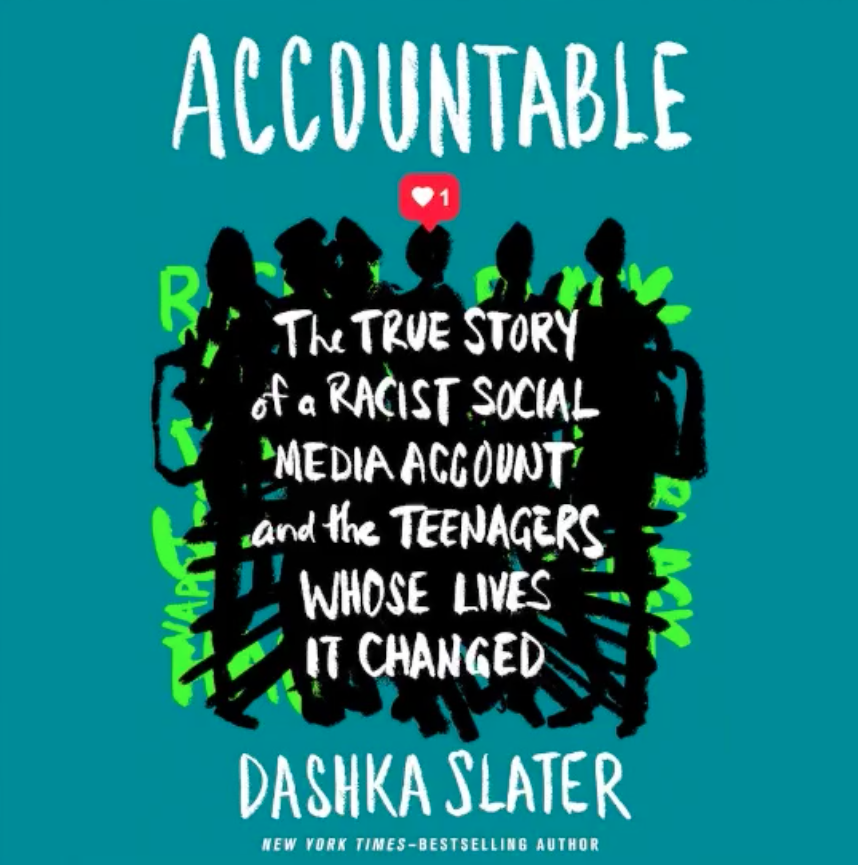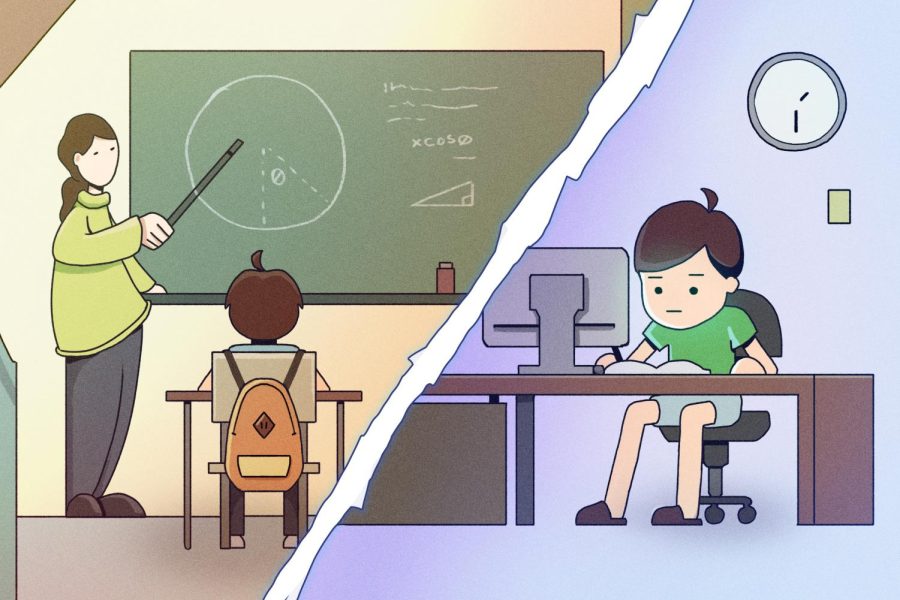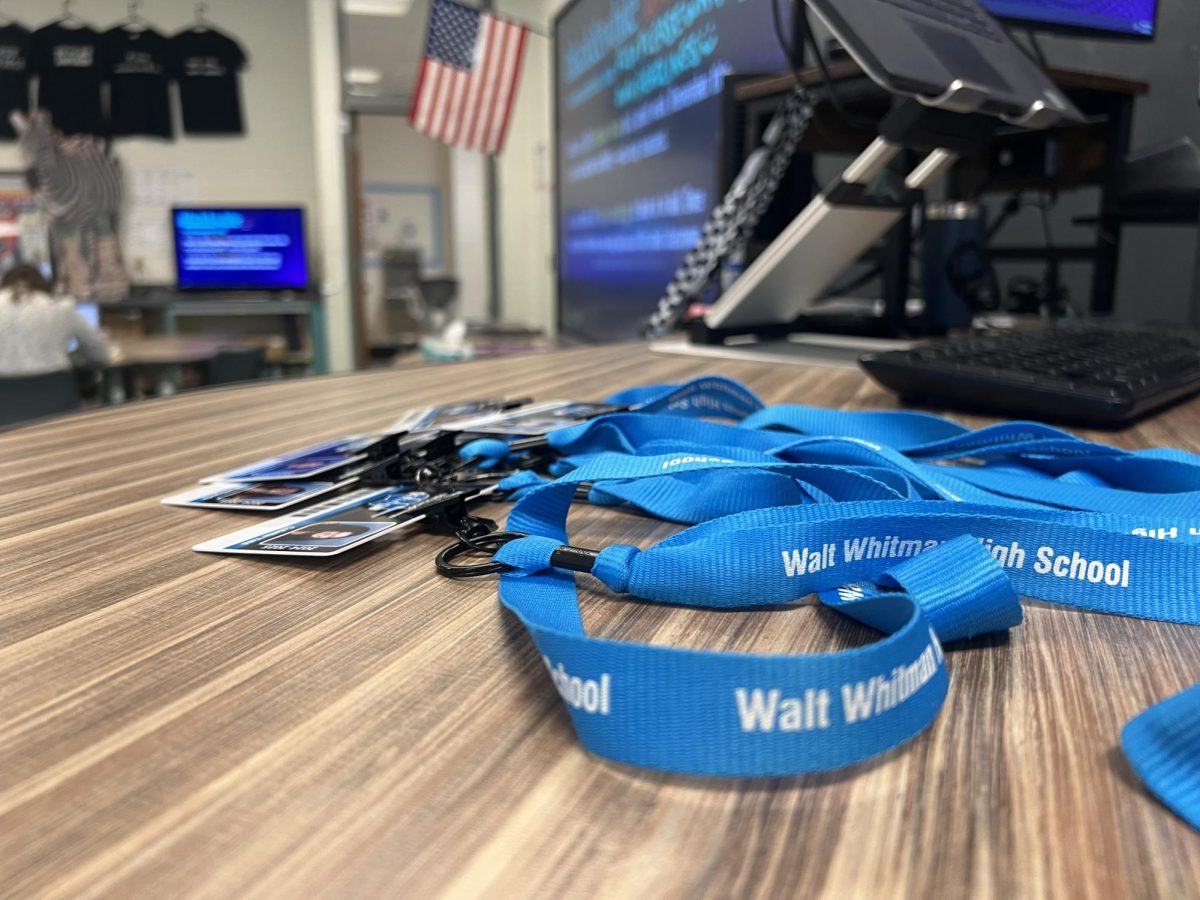On October 5, New York Times best-selling author Dashka Slater visited Whitman to discuss her novel “Accountable: The True Story of a Racist Social Media Account and the Teenagers Whose Lives It Changed.” Students learned about the true story of a harmful incident on social media that disrupted the community surrounding a small high school in California.
“Accountable” follows the discovery of a racist social media account created by a student at Albany High School in Albany, California. Posts on the private account featured an image of a Black classmate and her basketball coach with nooses drawn around their necks and other racially motivated pictures and memes. The discovery led to the division of the Albany community as tensions rose between students and parents.
Most notably in the story, after the account’s discovery, a mediation session between account followers — dubbed “The Harmers” by the Albany community — and students featured on the account went awry. Students featured on the account forced the account followers to face a student protest, quickly turning into a mob of people who ridiculed the followers.
However, “Accountable” isn’t Slater’s first nonfiction novel. She published “The 57 Bus” in 2017, which tells the true story of a nonbinary teenager whose skirt was set on fire by another teenager while riding a bus in Oakland, California. The novel won various awards, including a Stonewall Book Award, the Mike Morgan & Larry Romans Children’s & Young Adult Literature Award and was a finalist for the YALSA Award for Excellence in Nonfiction for Young Adults.
Slater took four years to write “Accountable,” and researched and wrote it while the lawsuit between the account creator and a victim of the account was ongoing. The lawsuit went to the United States Court of Appeals for the Ninth Circuit, but the United States Supreme Court declined to hear the last remaining appeal from the lawsuit on June 20. Slater had to work around confidentiality issues by addressing students and parents involved using pseudonyms because most students mentioned in the novel were minors at the time of the account discovery.
Principal Robert Dodd believes that “Accountable” provides a learning opportunity for the Whitman community to foster an inclusive environment for all.
“While not a complete reflection of Whitman, there certainly are some similarities between what transpired with the account and some of the horrifying incidents that have happened over the years at Whitman, including anti-semitism,” Dodd said. “I think [with] a book like this, there’s a tremendous amount for students, school staff and parents to learn from to ensure that something like this doesn’t happen.”
Over the past several years, MCPS has experienced a growth in racist and discriminatory acts of vandalism on school property, some of which have occurred at Whitman. The most recent incident at Whitman was on December 18 when anti-semitic graffiti reading “jews not welcome” was found on the Whitman sign.
After attending Slater’s presentation, sophomore Sadye Rider had a new understanding of the power of social media and how harmful the argument of “it’s just a joke” can be, she said
“If racially motivated jokes continue without any punishment it becomes the norm,” Rider said. “What is thought of as a joke can quickly spiral into hate.”
Slater encourages media literacy among youth, highlighting it in her presentation as a way to combat online hate. Media literacy refers to one’s ability to judge online information for accuracy and bias.
“First of all, I hope that they understand some of the social media dynamics and that this stuff doesn’t just happen [and] it doesn’t organically exist, but that there are various actors who are pushing the buttons,” Slater said. “I also hope for some introspection about what each reader’s vision of justice is and what accountability is, and some thoughts about how you create a just world that allows for the capacity of transformation.”
During her visit, Slater referred to Big Tech during her discussion of “actors pushing the buttons.” Slater discussed how online platforms run by Big Tech can encourage discriminatory behavior through their algorithms. She asked the audience to reflect on whether they had ever come across racist or discriminatory content online, leaving almost everyone with their hands raised.
Slater met with the account creator many times over four years and said she was glad that he and two other account followers agreed to work with her and tell their stories because it allowed her to give her readers the full details from both sides.
English teacher Trisan Garnett attended the presentation after reading the book. Garnett said the story resonated with her and that she could relate to the people harmed by the account.
“It’s very interesting that the story does follow how they [the account contributor and followers] become victims because people are fighting to say what and how fair their punishments are,” Garnett said. “But in the meantime, despite there being punishment, you can’t take that harm back. The scar of walking into a classroom and feeling as if everyone is looking at you like you’re not enough will follow you for the absolute rest of your life.”
Slater is already planning her next book, but she has decided to not write about hate, given that her previous two novels explored real-life hate crimes.
“My dream is that the people who let stuff go by will speak up,” Slater said. “Figuring out how to speak up and interrupt something is hard, but I hope that people learn that it’s easier than they think.”

















